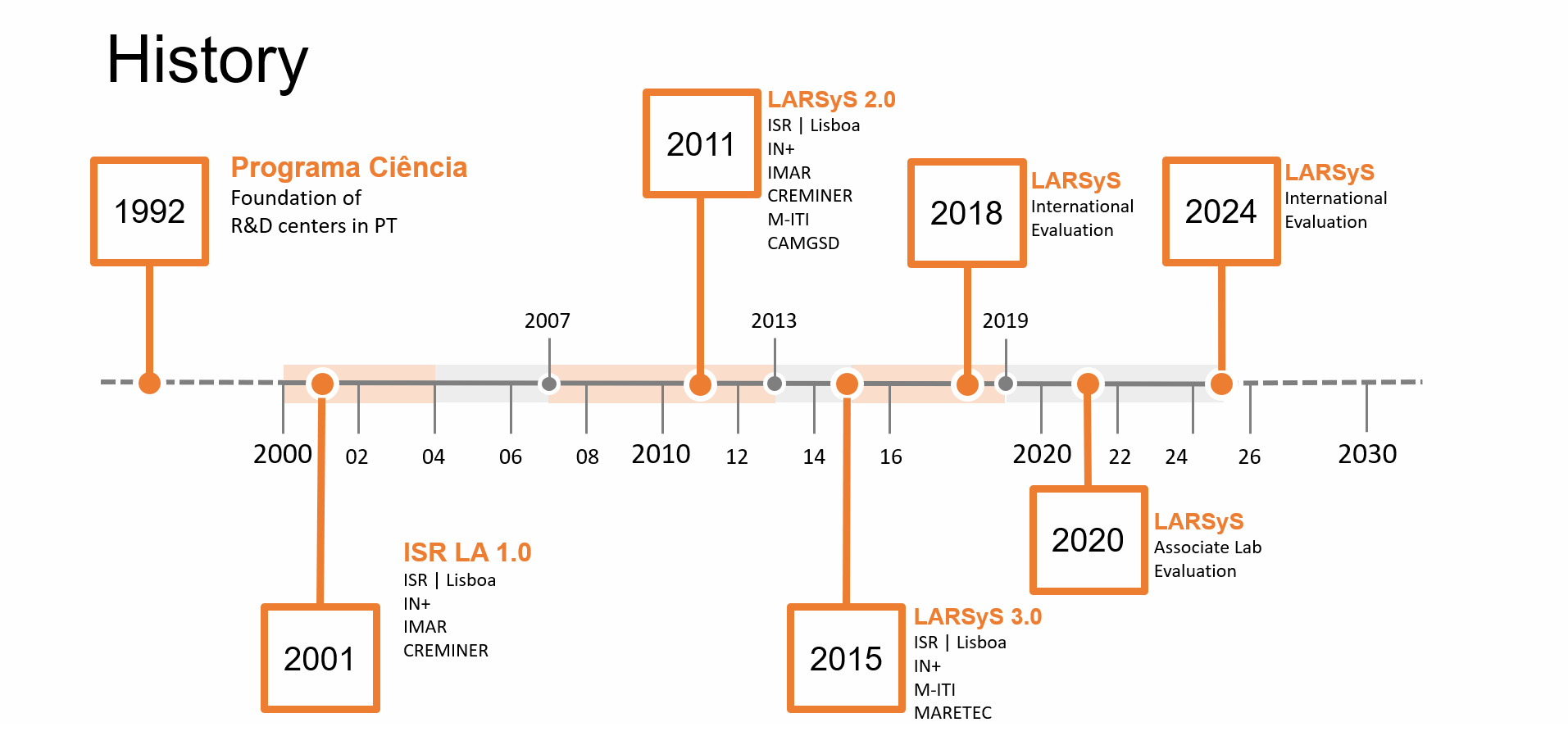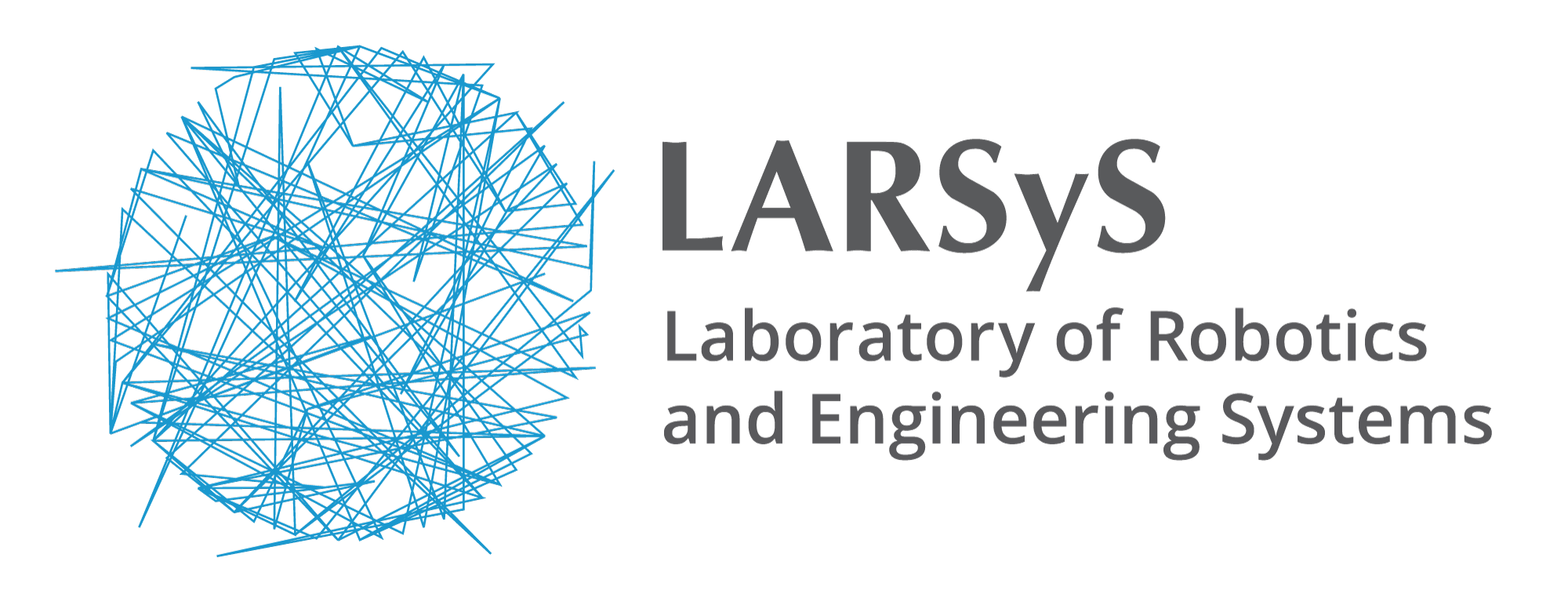The Associate Laboratory of Robotics and Engineering Systems (LARSyS) was founded in 2001 to conduct basic and applied research in engineering technologies relevant to industrial applications and societal challenges. LARSyS is uniquely positioned to contribute to the new research challenges because of:
- The strong scientific background in Systems, Data Science and Learning;
- The interdisciplinary social-technical systems (STS) approach combining analytical tools and methods of engineering, with social sciences and design tools and methods of inquiry;
- The real-world, application-driven motivation towards societal problems defined in thematic lines;
- The engagement with the social and economic implications of problems and solutions, leading to sustainable development goals through collaborations with industry, public policy recommendations and spin-off companies.
The timetable below illustrates the History of LARSyS until the present day.

Mission & Vision
LARSyS vision is to excel as a research center in the design of complex, socio-technical engineering systems that emerge from massive flows of data and a new generation of autonomous devices and cognitive artifacts, that bridge the gap between the digital and physical worlds.
LARSyS aims at research excellence at the highest international level in Robotics and Engineering Systems, including building-up new knowledge bases with impact in ocean, urban, aeronautic and space, biomedical, and future working environments, as well as to stimulate new industry-science relations and deepen our understanding of network science.
Our ultimate goal is to be actively involved in a new generation of research question and issues in Robotics and Engineering Systems.
Our target is to enable new knowledge in network science to undertake core challenges such as distributed optimization and decision-making for large-scale dynamic networks, Big Data processing, and user communities’ representation for pro-social behaviours and actuation upon them. Overall, our researchers aim to foster new frontiers in Robotics and Engineering Systems, covering dynamical cyber-physical systems, human-computer interaction and social-technical systems, as well as policy research dealing with uncertainty and risk governance. This will involve the following general strategic objectives:
- Promote scientific research and technological development in emerging areas of interest in Robotics and Engineering Systems, through major research projects with national or international Universities, R&D institutions and industrial companies;
- Promote active intellectual collaboration among researchers with varied backgrounds and perspectives acquired in different kinds of science (e.g., experimental, computational and theoretical), different sectors (university, industry, governmental and regional administration) and different regions;
- Provide education and research experience for graduate and undergraduate students, post-doctoral researchers, and industrial fellows, providing exposure to leading-edge research and introducing the students to large-scale collaborative research ventures;
- Promote the diffusion of scientific results through publications and by organizing seminars, conferences, exchange visiting programs and scientific meetings at a national or international setting;
